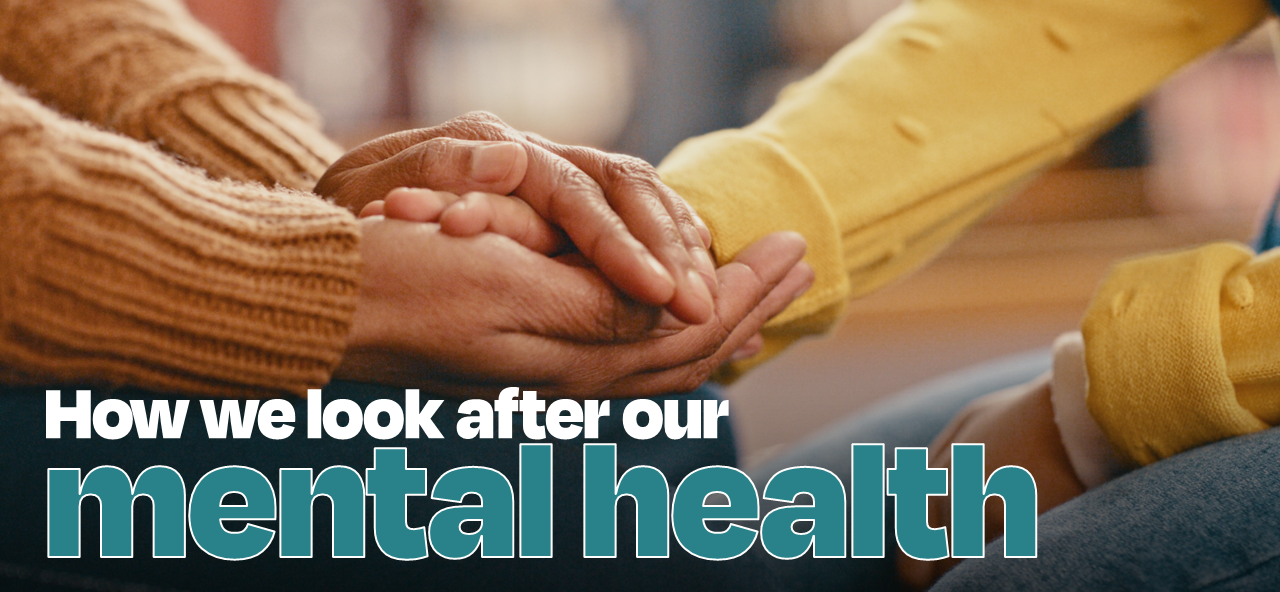How we look after our mental health
We all struggle with our mental health, sometimes it’s obvious and sometimes its not. Even the most creative and liveliest of us can struggle with it.
That’s why for Mental Health Awareness week 2024 we sat down with our Marketing team to discover how they look after their mental health. Every time someone shares their vulnerabilities, it helps normalise it and makes someone else feel less alone.
Emma: As someone who struggles with low mood and anxiety my mental health is a daily struggle; Sometimes even the thought of doing a task is a barrier (to me doing a task takes time away from other stuff that I don’t end up doing anyway because those take time away from other stuff and the cycle continues) so that is why I:
- Have daily routines and weekly routines. Daily routines are a strict set of tasks I do either every day or on a given day i.e. every morning I do 3 deep breaths and set my intention for the day but I only do badminton on a Tuesday. Weekly routines are tasks I have to complete weekly, but it doesn’t matter when I do them i.e read 2 days a week and tidy my desk.
- Go for a walk at least 5 times a week. No matter how long or short, getting outside keeps me active, gives me much needed vitamin D and just gives me a moment of calm.
- Have at least 6 hours sleep. A good night sleep helps us rest after all.
- Have a dedicated Spotify playlist filled with songs that ground me and allow me to recentre.
- Try to be kind to myself. If I don’t complete something trivial who cares! No one is perfect and sometimes we just need to idle. We are not robots.
If you are making a playlist try to find songs that you can really focus on, boosts your sense of self or has a strong motivational message.
Alanna: Sometimes, no matter what advice or uplifting quote is thrown your way, it feels impossible to get yourself out of a rut. The thought of reaching out for help can be terrifying, but I promise that it will be worth it. I have seen different types of mental health professionals over the years to help manage my day-to-day mental health and my mood disorder, so hopefully some of the things that have helped me will help you too:
- Release anxiety and tension from your body – drop and roll your shoulders, unclench your jaw, close your hands into fists and then release by spreading your fingers.
- Remember that you are not alone. There are people out there who understand you and want to help you. A friend or colleague, a helpline or healthcare professional.
- Take time to reflect on how far you have already come. A year ago, you probably didn’t think you’d be where you are now, but you made it here despite any setbacks – be proud of yourself.
- Don’t forget to take care of yourself on the ‘good’ days too, it makes moving through the ‘bad’ days a little bit easier.
- Spend time in nature and put down your phone. It’s natural to want to curl up on the sofa when you get home from classes, and whilst that is a valid and comforting way of taking care of yourself, make sure to balance it out by going on a walk, sitting in the garden with a book, exploring somewhere or something new.
We have lots of different support options for our students. If you reach out or make use of one of our resources on a ‘good’ day, when a ‘bad’ day comes, it wont feel as scary.
